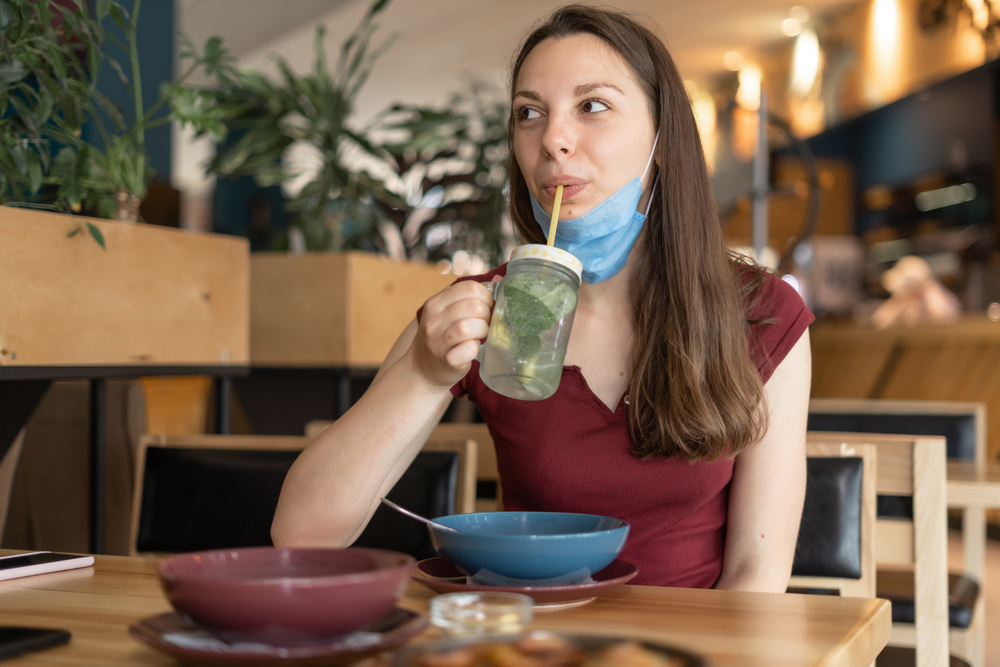 The mask mandates have dropped all over the country thanks to the success of the COVID-19 vaccinations. Now, the question becomes should we continue to wear masks in public spaces after getting vaccinated when it is no longer required? Although there are a lot of differing opinions on this subject, here are a few facts to keep in mind before deciding what’s right for you and your family.
The mask mandates have dropped all over the country thanks to the success of the COVID-19 vaccinations. Now, the question becomes should we continue to wear masks in public spaces after getting vaccinated when it is no longer required? Although there are a lot of differing opinions on this subject, here are a few facts to keep in mind before deciding what’s right for you and your family.
The Vaccine is Not a Guarantee You Won’t Get COVID-19
So, now that you have been fully vaccinated, you may be feeling a bit invincible when it comes to COVID-19. Unfortunately, the truth is you are not entirely safe from all the variants that are continually adapting and spreading throughout the globe. In other words, the vaccines cannot give you a 100% guarantee against contracting the virus. Also, there have been some breakthrough cases reported. This means face coverings could still play a role in slowing the spread along with other safety measures.
The good news? By deciding to receive the vaccine, you have taken a giant leap towards protecting yourself, your family, and your community from this highly contagious disease as vaccines are linked with some very impressive data. In fact, the results are so encouraging that most of the states have dropped the mask mandate. That said, this data may not translate into a decline in new daily cases in your area for a variety of reasons including how well other safety measures are still being followed and the number of people who have received the vaccine.
People Around You May Not Be Vaccinated
One reason we are seeing breakthrough cases is not everyone is electing to or meets the eligibility requirements to receive the vaccines. Like Polio, influenza, or other diseases where vaccinations have helped curb the number of cases, the larger the population of vaccinated individuals the better the chances of controlling the spread. However, if you are in a crowd of people who have not been vaccinated, you stand a greater risk of becoming infected. Therefore, when considering the question of whether or not you should wear a mask, factoring in the number of people you are expecting to be around can help you decide. If you are going to be in close contact with others, for instance, you may decide a mask is a precaution you are willing to take to protect both yourself and those around you in the event you are unknowingly a carrier of COVID-19.
Vaccinated Individuals may Still Spread COVID-19
Continuing to wear masks along with practicing other safety measures are still helpful protective measures you can take to slow the spread of COVID-19 to others as you may be a carrier of COVID-19 without any symptoms. This is especially important if you are experiencing signs of illness. People who are carriers of any contagious illness should take added precautions such as wearing face coverings, maintaining at least six feet of distance when around others, and washing your hands for at least 20 seconds while applying friction. Please note, if you have tested positive for COVID-19, staying home in quarantine for two weeks is the best way to heal faster with rest while helping control the spread of this potentially deadly disease.
Your Comfort Level Matters
Another factor to consider is your comfort level as well as that of those around you. The pandemic has already made many people feel isolated. It can be easy to forget about the role mental health plays in being productive at work, participating in social activities like family events, and taking time to find the joy in life. Be sure to monitor your emotions and discuss any noted changes, questions, or concerns you might have with your primary care physician.
Does Any Face Covering Help?
If you elect to wear a face covering for the purpose of protecting yourself or others from some of the potentially harmful airborne particles in public places, there are some face coverings that work better than others to accomplish this goal. The CDC has posted some general guidelines on their website. It should be made with multiple layers of fabric, fit snugly around your nose and mouth, and have a nose wire.
What Else can I Do to Help Slow the Spread?
Whether or not you decide to wear a face covering, there are some safety precautions that should always be taken. For example, stand or walk with a safe distance from others while in public, wash your hands before you touch your face or food, stay home if you notice any signs of illness, and keep your regularly scheduled healthcare appointments with your primary care physician. If you live in the Lake Wales, Florida area and you are looking for a primary care physician, contact Navarro Medical using the information found on our contact page to schedule an appointment.